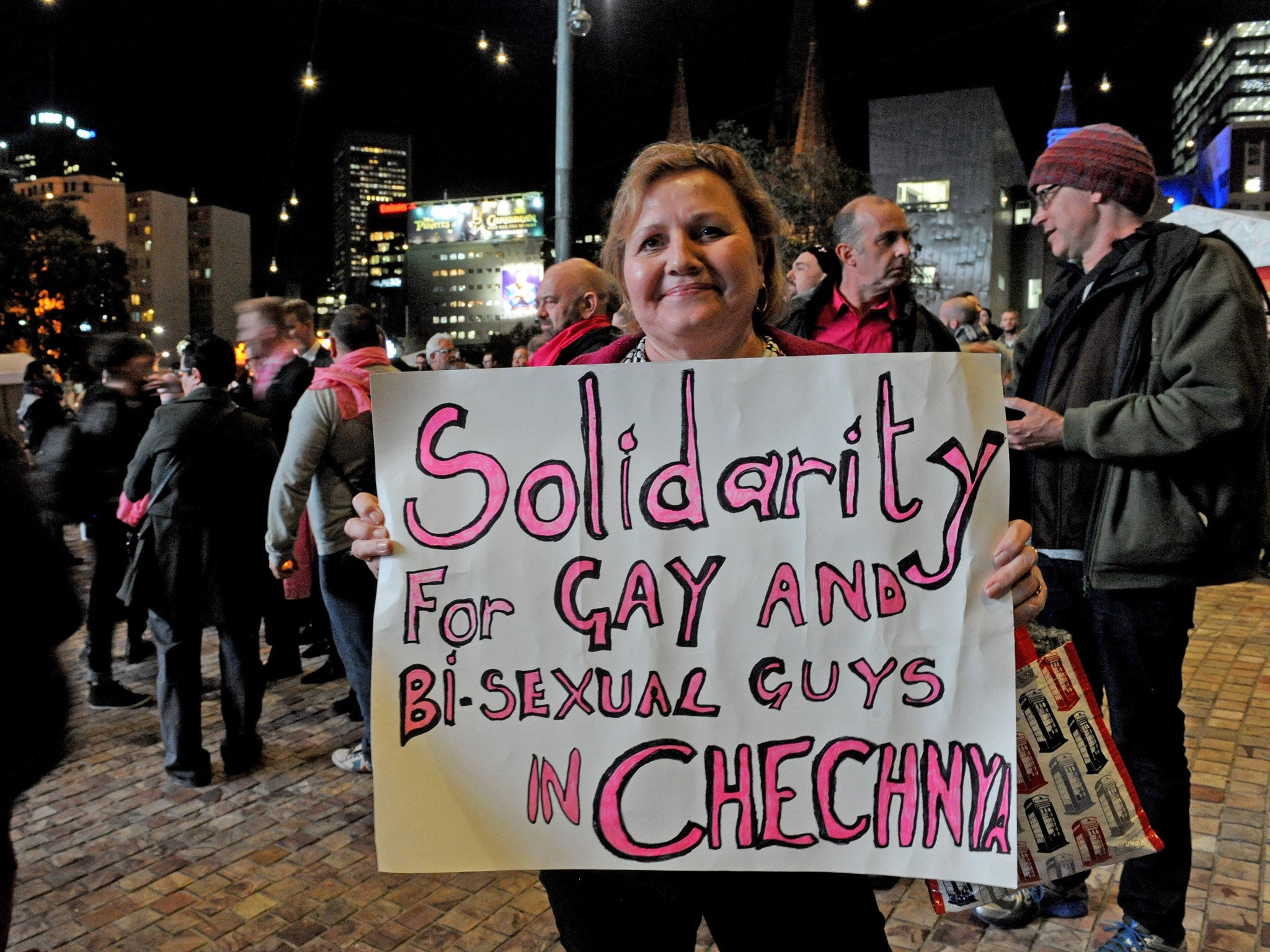Beatings, electric shock treatment and forced starvation for LGBT+ community in ‘secret' Chechnya prisons, NGO reports
Abuses were 'directed by the highest officials of Chechnya', report says

Severe beatings, electric shock treatment and forced starvation continue to be perpetrated against the LGBT+ community in Chechnya, a leading Russian NGO has said.
At least 36 people have suffered “abusive treatment” in secret prisons over the past year according to the Russian LGBT Network, an NGO based in St Petersburg, which cited testimonies alleging the abuses were “directed by the highest officials of Chechnya”.
“The victims were subjected to tortures, humiliations, and other measures that harm their physical and psychological well-being,” the group said.
The claims are contained within a report prepared with Russian newspaper Novaya Gazeta, which in April of last year exposed the arrest, torture and murder of members of the Chechen LGBT+ community.
The paper wrote that Chechen police had rounded up more than 100 gay men in a “prophylactic sweep”, killed three and subjected many to prison beatings and electro-shock torture.
Kheda Saratova, an activist on the humans rights council of Chechen President Ramzan Kadyrov, responded at the time: “I haven’t had a single request on this issue, but if I did, I wouldn’t even consider it.”
“In our Chechen society, any person who respects our traditions and culture will hunt down this kind of person without any help from authorities,” she added.
President Kadyrov’s press secretary Alvi Karimov also previously denied the existence of homosexuals in Chechnya.
“This publication is a complete lie,” he said last year.
“It is impossible to detain and oppress those who simply don’t exist in the Republic.”
“If there were such people in Chechnya, the law-enforcement agencies wouldn’t need to have anything to do with them, because their relatives would send them to a place of no return.”
But several testimonies in the updated report describe abuse by Chechen police and military personnel.
“They threw me to the floor and beat me,” said a victim known as I.J.
“They beat my chest and my face with their feet, and they hit my head against the floor. One of them said: ‘Do not beat him until the shock stage, at that point he will stop feeling pain. We don’t need that.’”
Another victim known as E.F. described their car being raided by police who on finding bracelets and a leather bag said to them: “Are you a faggot? If you are, I’ll shoot you right here.”
The LGBT Network said that it continues to document reports of detentions in Chechnya with authorities “visiting the houses of some previously detained survivors to learn if they stayed or left the region”.
Many have fled the country over the past year to escape persecution according to the NGO.
“The Network’s activists evacuated 119 people from the region and accommodated the survivors in shelters located in the central part of Russia,” it said.
In an interview with HBO last year, President Ramzan Kadyrov denied any sort of crackdown: “This is gibberish. We don’t have such people. If there are any — take them to Canada. For the sake of Allah. Then, they would be far away from us.”
Join our commenting forum
Join thought-provoking conversations, follow other Independent readers and see their replies
0Comments